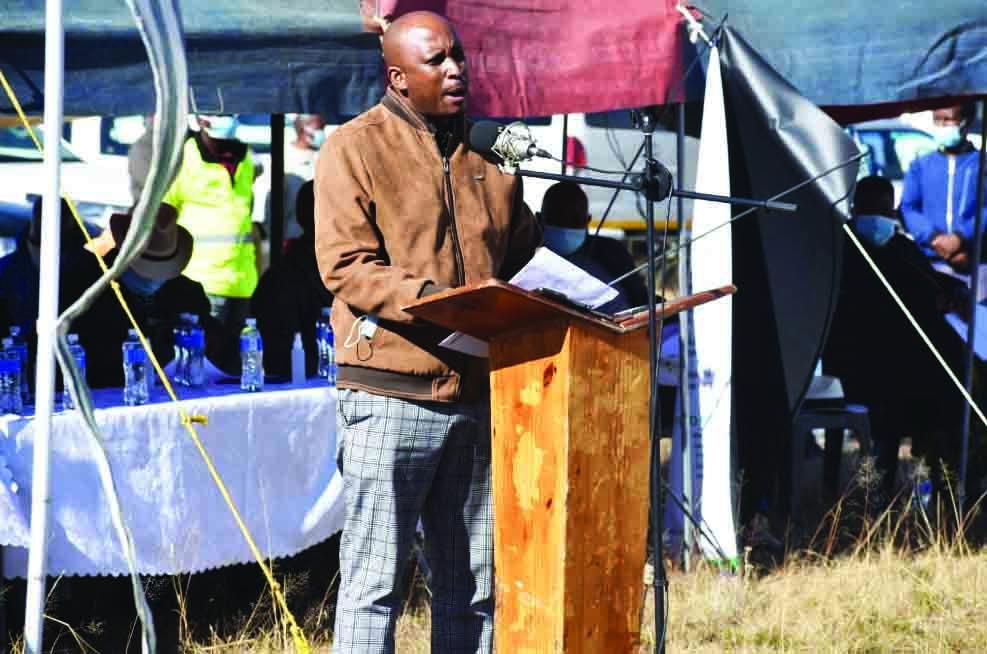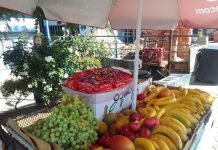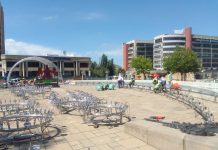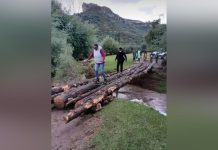Africa-Press – Lesotho. A new solar project in Ha-Ramarothole in Mafeteng district is expected to generate enough electricity and significantly reduce Lesotho’s reliance on power imports.
That was the message that was relayed to villagers during a consultative meeting held last week. The project is also expected to create at least 200 jobs in its initial phase.
The villagers pleaded with the Lesotho Energy and Water Authority (LEWA) to speedily facilitate the issuance of a licence for Neo 1 Solar Project. Neo 1 Solar Project is a subsidiary of OnePower Lesotho (Pty) Ltd which was given the job to supply power for the rural community in the area.
The project was initiated by the government in 2016. The project aims to develop a 20MW PV generating station. The planned injection point is the Ha-Ramarothole substation in Mafeteng at the transition between the Lesotho Electricity Company’s 132kV and 33kV grid.
The benefits to Lesotho include clean and secure energy through a long-term power purchase agreement as well as community programmes to uplift the adjacent villages of Ha-Ramarothole, Ha-Raliemere and Ha-Lempetje. OnePower’s Neo 1 plant will be Lesotho’s inaugural utility-scale solar power source, financed in partnership with Scatec Solar and Norfund.
The project came after the African Development Bank (AfDB)-managed Sustainable Energy Fund for Africa (SEFA) approved a US$695 500 (about M97.3 million) grant to Neo 1 SPV Pty Ltd to support the preparation of a bankable business case for the development of the winning project of the 2016 Lesotho 20 MW solar PV tender, foreseen to become the first utility-scale solar PV project in Lesotho.
The project is expected to contribute to a strategic phase-out of costly power imports from Mozambique and reduce reliance on imported coal-generated power from South Africa.
It will also contribute about 13 percent to Lesotho’s maximum system demand of around 150 MW. By substituting 20 MW of costly imported power from Mozambique, it will decrease power retail prices in Lesotho.
It will also entail greenhouse gas emission substitution effects as a result of reducing imports of thermally generated power from South Africa. The project is aligned with the AfDB’s 10-Year Strategy focusing on inclusive and green growth through the delivery of energy access, the Bank’s Energy Policy and the New Deal on Energy for Africa.
On the national level, the project is aligned with the Lesotho National Electrification Master Plan (NEMP), the Lesotho Electricity Authority Act No.12 of 2002 and its National Rural Electrification Program (NREP) as well as with the government’s Fifth Pillar of Poverty Reduction through Energy Access.
Speaking on behalf of local chiefs, Chief Konyana Ramarothole of Ha-Ramarothole pleaded with the LEWA to speedily issue the licence to Neo 1. “We have learnt of how cooperative they have been ever since their arrival here,” Chief Ramarothole said.
“We hope they will fulfill their promises unlike other projects that came before but left the villagers without any benefits,” he said.
On behalf of the local community, Abel Mohlabi, shared similar sentiments with the chiefs saying that they have seen the company’s efforts to date and wished they could keep up that way.
“We hope compensation to field owners will be worth it so that by the end of the project they will have something to show for it,” Mohlabi said. The project is located at a site which used to be fields with the owners getting compensation.
Neo 1 Solar Project’s representative, Kopano Tšenoli, said the 25-year project is a first of its kind in the country and approximately M400 million has been set aside to complete it.
Tšenoli said the project followed a call by the government in 2015. He said the project will increase Lesotho’s power generation capacity by 30 percent.
“This is a huge addition and it will help Lesotho not to rely more on other countries such as Mozambique and South Africa. This project is very important,” Tšenoli said. About 40 fields which were owned by 36 shareholders were taken to allow the project to take-off.
He said the project’s kick off will depend on how soon they get the licence and their agreement with the government and the LEC, which is their customer.
“There are still some agreements that need to be completed and only then we will be able to determine the timeframe,” he said.
“Hopefully all this will be done by around July or August.
” He said they were satisfied by the feedback from the villagers.
“This shows we are on the right track and we will continue working in transparency,” he said.
He said 200 villagers will be hired during the work and about 30 will be hired permanently once completed. He said construction of the project will take seven to eight months.
He said Scatec solar, the Norwegian development fund, Pension Fund and Izuba Energy have invested in the project. “These investors have broad experience and they have built similar projects in South Africa, Mozambique and Rwanda.
” He added that “our project will help protect our environment as polluting it is dangerous”.
The LEWA Chief Executive Officer, Motlatsi Ramafole, said they were mandated by law to seek the public’s views before issuing a licence. “The public’s input helps us make a decision,” Ramafole said.
For More News And Analysis About Lesotho Follow Africa-Press






